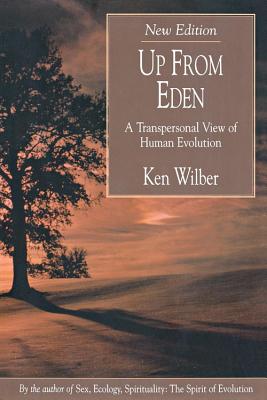Discussion Post I submitted for my Atlantic University TP5100 Course – September 30, 2020
In Up from Eden, Ken Wilber offers a neat and tidy four-stage, or as he refers to it, level, evolution of human consciousness. Level 1 begins with the pre-sapien human, approximately 3-6 million years ago (Wilber, p. 28). Wilber describes humans in a dream-state, where there is “no difference between himself and the environment” (Wilber, p. 338-339). Human consciousness evolved in Level 2 with the Neanderthals 200,000-50,000 years ago, and the Cro-Magnon, 50,000, 10,000 (Wilber, p. 343). In this stage, consciousness has entered a period of higher emotions where humans now see themselves as “separate from the natural world,” and they experienced time as “the simple, passing present” (Wilber, pp. 363 & 377). Wilber labels Level 3 the farming stage, which began in approximately 10,000 B.C. through 1,500 B.C. At this point, humans begin to experience “the cyclic, seasonal time of mythic membership” where “mankind discovered farming” (Wilber, pp. 377 & 405). And finally, beginning in roughly 1,000 B.C., humans entered Level 4, which Wilbur notes is the “first exclusively egoic structure of consciousness” (Wilber, p. 499). He breaks this final group into three stages: low (2,500-500 B.C.), middle (500 B.C.-1,500 A.D.), and high (1,500-present) (Wilber, p., 500). In the 4th Level, humans experienced a “breakdown of the membership structure,” the rise of city states, and patriarchy displaced the Great Mother (Wilbur, p. 504). He adds that with the end of the Bronze age, consciousness’s transformation began (Wilber, p. 516-517).
Robin warned us in this week’s intro video that Wilber’s material can be a bit dense, and I must concur, although his later writings, which we reviewed last semester, were much more accessible. My first reaction is to agree with Stan Grof that “Wilber offers nothing less than a drastic reformulation of history and anthropology” (Grof, 1981), a quote that Kevin Shepard uses to launch in his scathing critique of Up from Eden (Shephard, 2013). While Grof didn’t mean his words to be critical, I agree with Shepard, at least on his point that Wilber has rewritten much of what we know about our ancestors. I don’t see how you can use such a broad brush to postulate what ancient humans thought and how they viewed the world. Watching numerous documentaries about ancient civilization recently, which wasn’t around when Wilber wrote Up from Eden, archeologists are discovering new sites on land and underwater that date back 10s of thousands of years and possibly more than 100,000 years ago. Like the pyramids in Egypt, the sites show incredible craftsmanship, stonework, and logistical prowess that would be difficult to match with today’s technology. The fact that this type of consciousness, planning, organization, and collaborative ability existed at least as far back at Wilber’s Level 2 calls his entire theory into question. His theory reminds me of the old quip about economists who see things in practice and wonder if it will work in theory.
References
Grof, S. (1981), “Wilber, Ken. Up from eden: a transpersonal view of evolution,” The Journal of Transpersonal Psychology, 13(2), pp. 1-2. Retrieved from http://www.integralworld.net/rev/rev_ufe_grof.html
Shepard, K. (2013, August), “Ken Wilber, up from eden: a critical assessment of Ken Wilber’s early writings.” Retrieved from http://www.integralworld.net/shepherd3.html#Eden
Wilber, K. (1981), Up from eden, New York, NY: Doubleday
